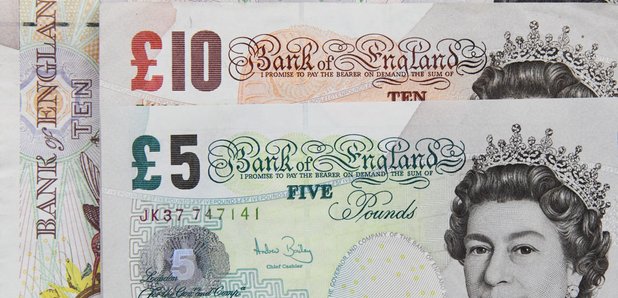
Richard Spurr 1am - 4am
15 July 2017, 20:34 | Updated: 15 July 2017, 20:37

There is a part of our society that wants to get rid of cash.
That sounds like the kind of thing that hippies wanted to do in the 1960s. It sounds like the sort of thing that hippies still want to do today.
The type that used to go to Glastonbury before it went corporate, and who looked like they lived that kind of life all year, rather than just visited it for the weekend.
They probably would rather barter their way through life. If you live in a loose collective, you could trade your skills as a grower of vegetables for someone else's ability to crochet hats.
If you have an affinity with animals, you might be able to coax a chicken to slough off its feathers and hop into a boiling pot of water for someone else's knack of fixing the engine on a Volkswagen split-screen van like the one that Scooby-Doo used to travel about in.
But it is not the poor and unwashed that want to get rid of money. It is the very clean and stupendously rich.
It seems odd, but the organisation that is working to bring about the death of cash is one that deals in so much currency that it made $2bn of it in clear profit in just three months last year.
It is a credit card company. Just as the number of people defaulting on their credit card payments are rising at the fastest rate since the start of the last recession, those same companies want to force us to use their cards even more and are actively working to make that happen.
The problem with cash, as they see it, is that they do not get a cut of any transaction we make with notes and coins.
As usual in the world of finance, making an absolute fortune is not the goal. The goal is making an even bigger fortune. No amount is sufficient.
A profit made at the rate of $8bn a year is not what they call success, it is what they call not nearly enough.
To make more, Visa is paying small and medium sized businesses in America $10,000 to refuse to take cash from their customers.
Visa wants all transactions to be made via itself, so that it can get a piece of all of the action. They are actively working to bring an end to real money and to make everything on-screen, on-line and under their control.
And what happens in America happens here too.
Visa, said: “With 70 per cent of the world, or more than 5 billion people, connected via mobile devices by 2020, we have an incredible opportunity to educate merchants and consumers alike on the effectiveness of going cashless.”
They want to "educate" us!
The revolution has been coming ever since those contactless payments were brought in and we fell under the spell of tapping and going.
With tap-and-go, everything seems to be free. There is no money proffered, no change offered. You don't even have to put in your PIN number.
It is so easy and quick that it does not feel as though you are exchanging money when you pay that way.
It is insidious. The amounts you are spending creep up without the old cues of running out of cash and having to go to get more.
They are like the food companies that engineer their snacks to eliminate the feeling of fullness, to make you keep eating.
This is the way the credit card companies like it. They want you to spend money you don't have because then you won't be able to pay off the full amount of the bill at the end of the month.
The evidence suggests that is exactly what's happening. Personal unsecured debt is as high as the record breaking amount we set just before the last financial crash.
And when you don't pay off the bill in full, then the fun starts, as the card companies start to charge you the sort of interest rates that would make the Mafia blush.
The game is to get you under a perpetual cloud of debt that you can't get out from under. You become trapped, working ever harder to pay the interest on the debt you can't afford to pay off. If that sounds like slavery, it pretty much is.
And it is entirely our fault. We have become addicted to the high of spending, to the rush of feel-good chemicals that flood our brain when we buy something.
The companies that deal in credit are like drug dealers, except they make much more money and it is all completely legal.
The only way to break free is to go cold turkey. Cut up your cards, reign back your spending and pay off your debts.
Small steps can make a big difference.
Maybe you buy a coffee every day you go to work and you don't think anything of it because you touch and go and, after all, it's just £2.50 and it is nicer than the stuff they have in the office.
Say you work 50 weeks a year, five days a week. That £2.50 a day frothy coffee habit costs you £625 a year. Would you drink the work's coffee if I gave you £625? It doesn't taste that bad does it?
We can break free of the tyranny of perpetual debt but we are going to have to give up a few inconsequential, immediate highs to achieve long term happiness and some good nights' sleep.
And if a shop suddenly starts to refuse your payment in cash, tell them that you are suddenly put off shopping there.
The prospect of earning less money will stop the cashless revolution in its tracks.